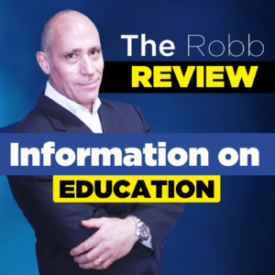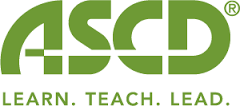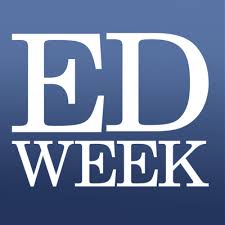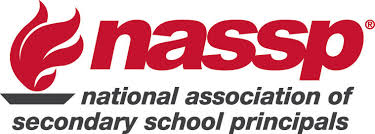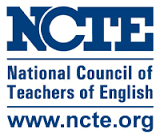Teachers: Welcome Back to School!
By Laura Robb and Evan Robb
Several years ago, a lead teacher Katie Winslow, called me. She told me that Lily, a first year teacher, was anxious about teaching twenty-five second graders and was staying at school often past 8:00 pm. I knew Lily. Her parents were friends. Katie Winslow and I agreed to collaborate in order to help Lily.
Each day that passed, Lily stayed at school later and often the custodian had to ask her leave before locking up the school. When I spoke to Lily, she told me that she had to prepare for every possible contingency, otherwise, she felt as if she couldn’t get through the school day. Young and bright, Lily wanted to do everything “perfect” for her students. She over planned and tried to predict each student’s reaction to lessons so she could help them.
Quite often, like Lily, first year teachers try to resolve their teaching anxieties by overworking and eventually dreading coming to school. Continual conversations over time can ease the stress and at the same time help teachers realize that they can’t prepare for every possible learning situation.
To allay the apprehension of first-year-teaching jitters as well as the uncertain feelings experienced teachers have entering a new school, principals have developed ways to transition teachers into their schools’ culture. Usually, before regular staff returns, new teachers meet to walk through the school, review the school’s handbook, and discuss schedules. In addition, schools pair-up new teachers with a mentor, an experienced teacher who meets with their mentees throughout the school year. Moreover, principals and other lead teachers often have an “open door policy” which means they will always make time to discuss issues with teachers. Knowing that help is always available can prevent frustration and rising anxiety among first year teachers and teachers new to a school.
The tips that follow provide teachers new to a school with suggestions that have worked for veteran teachers. However, all teachers might find a nugget of advice that they can use or adapt.
Build relationships with many mentors:
- Meet regularly with the mentor your school assigns you to during the entire school.
- Cultivate positive relationships with other teachers and identify those you trust, relate to, and believe can also help you. Invite a mentor to observe a lesson and provide feedback on what worked and areas that require self-reflection and adjustments. Then, invite the mentor back to observe an updated lesson. Experience will reveal that teaching is a journey, and input from others combined with self-reflection can result in progress.
Setting Up your Classroom
- Evaluate your classroom space and remember that how you set up your room reflects your teaching style. Besides having students’ desks in clusters of four to five, you’ll also want to create learning spaces. Have a quiet place for reading, a table where you can confer with students and they can confer with one another, a project area where students can work, and an area that houses your class computer(s).
- Organize materials for writing so students can get these independently. You’ll also want to have crates or shelves for writing workshop folders and readers’ notebooks.
- Cover your bulletin boards with construction paper and border trim. Then, post students’ writing, drawing, annotated timelines, etc. Posting student work not only honors what students do, but it also provides others with models and possibilities as long as you set aside time for students to read work on bulletin boards.
Planning Lessons
- Follow your school’s lesson planning guidelines and use your mentor to help you complete these each week.
- Make sure that you respond to students’ needs which means you might have to reteach a lesson and/or pull a small group for extra support. This means that you won’t always be able to complete lesson plans. This is a normal occurrence for all teachers. Simply move to the upcoming week what you haven’t completed.
- Planning for me each time class meets includes three elements you might want to try:
- note one to two goals for the lesson;
- list what students will do (active learning, the heart of the lesson);
- assess learning: this can be notes based on your observations; a writing task; discussions, etc. Assessment should grow out of what students are doing.
Getting Through That First Week
- Begin each day with a read aloud.
- Make students feel comfortable and start building a trusting community of learners with these activities:
– Share your interests and ask students to complete an interest inventory.
– Tell students about your reading life and ask them to write about theirs.
– Have students share with their group a great book they recently read or movie they saw.
– Hold getting to know you conferences with students.
– Teach students how to self-select independent reading books:100 % accuracy and comprehension –easy and enjoyable reads.
– Offer opportunities for reading self-selected books at school.
– Invite students to create a set of behavior guidelines for independent reading and writing.
- Introduce a different area of the room each day.
- Give out materials such as readers’ notebooks, writing folders, instructional reading texts, etc.
Establish Routines
- Model and explain what will happen each day your students are in class. The teacher:
– Reads aloud.
– Reviews the agenda for the class.
– Asks three to four students to pass out readers’ notebooks and/or writing folders.
– Presents a mini-lesson
– Has students complete guided practice after mini-lessons.
– Organizes instructional reading.
– Has students work independently and confers with a few students during this time.
Working With Parents
- Contact parents early in the school year to report good news about their child. This can be an email or a telephone call.
- Consider writing a bi-monthly or monthly newsletter that celebrates classroom learning experiences and activities. Parents love knowing what their children are learning. In your newsletter provide tips for parents that let them know how to reinforce classroom learning at home.
- Invite parents to join the PTA (Parent-Teacher Association) and meet other interested parents as well as work on fund raising projects for the school.
- Let parents know when their child struggles and explain the kinds of support you are offering at school.
- Listen carefully to parents’ concerns. Invite them to come to school to review their child’s work. Explain how you are supporting their child and suggest what they can do at home.
Meeting With your Mentor
- Avoid skipping scheduled meetings. Even though you feel you have everything under control, conversations with your mentor can give you insights into upcoming sports events, faculty meetings, setting goals, parent-teacher conference days, etc.
- Remember to occasionally write your mentor a note of thanks and appreciation. Most likely he or she is mentoring without additional pay, so the reward is in the relationship and helping a colleague.
Coping With Feelings
- When frustrations and anxieties arise, talk about them to your mentor. Often talking through issues can reduce the tension you feel.
- Try to pinpoint the origin of these feelings. Is your stress caused by lesson planning, students’ behavior, not enough time to cover material, parent complaints, frequent changes in daily schedules, etc.? If you can pinpoint the origin of the stress, then you can work with your mentor to relieve it.
- Know that all teachers, new and experienced feel stress and deal with frustrations. The difference is veteran teachers have more experience and have developed a menu of coping strategies.
Closing Reflections
All teachers face roadblocks during the school year. It’s part of the job. Turn to your mentors because they have the expertise to help you through times when feelings of “I want to leave” and “I can’t deal with that behavior one more day” overwhelm your emotional capacity. If there are several new teachers at your school, meet with them once or twice a month and compare experiences, share stories. Talking is one sure path to relieving stress and finding ways to cope. Always remember that teaching is a journey, and the travel eases as you gain experience.
You are part of an important profession: you have a hand in shaping the next generation by trusting and helping your students, by responding to their individual needs, and by celebrating with them the joy that comes from working hard to learn, think, solve problems, and reach a goal that nudges them forward.
Follow Laura @LRobbTeacher
Follow Evan @ERobbPrincipal
Sign up for our free newsletter! Get current information on education emailed to you every day! http://therobbreview.org/
![]()




